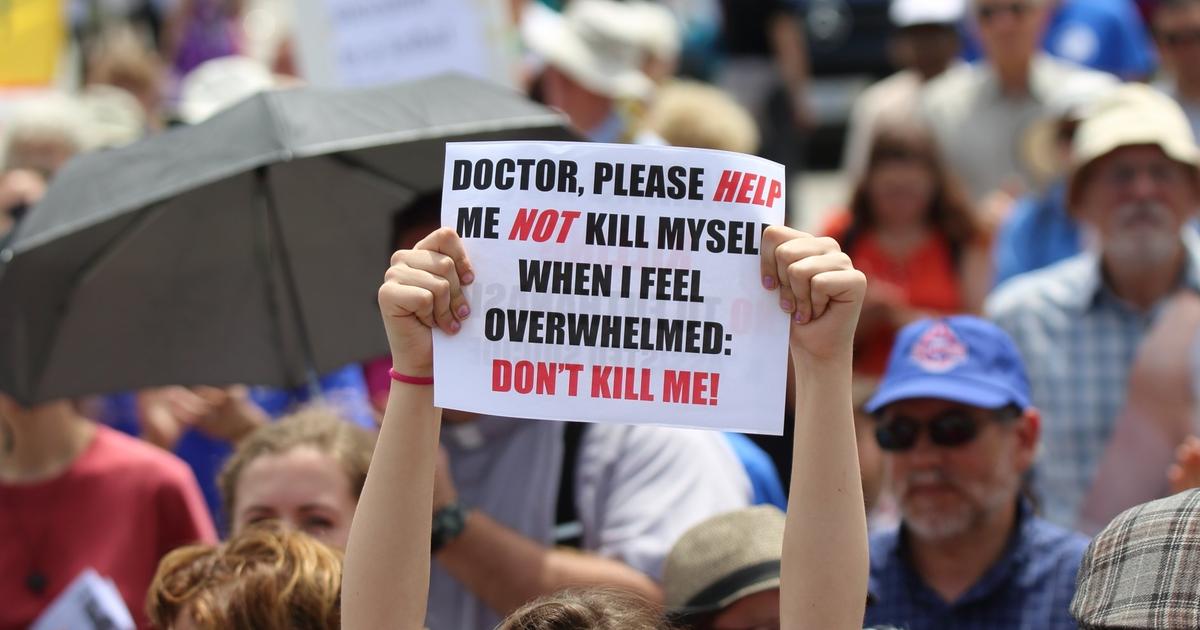Coincidentally, three days before the Cardus think tanks’ From Slippery Slope to Sheer Cliff: MAiD’s Impact on Canada Aug. 14 webinar event, a major U.S. magazine outlet published an in-depth exposé with the following headline in huge bold text: “Canada is killing itself.”
Elaina Plott Calabro of The Atlantic was on the ground in Vancouver to cover a two-day conference of the Canadian Association of MAiD Assessors and Providers, and she extracted candid quotes about what drives these physicians to help medically orchestrate scores of deaths.
Calabro made the following observation: “Canada’s leaders seem to regard MAiD from a strange, almost anthropological remove: as if the future of euthanasia is no more within their control than the laws of physics; as if continued expansion is not a reality the government is choosing so much as conceding. This is the story of an ideology in motion, of what happens when a nation enshrines a right before reckoning with the totality of its logic.”
Advertisement
Alexander Raikin, a visiting fellow in bioethics at the Ethics and Public Policy Center in Washington, DC, starkly revealed in August 2024 how Canada’s assisted suicide regime is the fastest-growing in the world.
This is the story of an ideology in motion, of what happens when a nation enshrines a right before reckoning with the totality of its logic.
His report for Cardus, From Exceptional to Routine: The Rise of Euthanasia in Canada, divulged how annual medical-killing deaths exploded thirteenfold from 2016 (1,018) to 2022 (13,241) and that it took just six years for euthanasia to be the cause of at least three per cent of all Canadian fatalities.
Raikin was one of the guest panelists, alongside David Shannon, a barrister and solicitor who co-authored the 2023 book Medical Assistance in Dying (MAID) in Canada: Key Multidisciplinary Perspectives, in a discussion moderated by Rebecca Vachon, Cardus’ health program director. The investigative researcher noted there is a stark difference between Canada and the only country in the world with a comparable euthanasia death rate.
“The majority of people who die through euthanasia in the Netherlands have an expected mortality of less than a month,” said Raikin. “The reality in Canada now, at least in Quebec, which is the only jurisdiction that records this information, is now a majority of people who died of MAiD in Canada have a natural life expectancy of over a month. The fastest growing segment is for those who have a life expectancy of more than six months.”
Advertisement
Raikin also noted that only 0.2 per cent of patients in the Netherlands who died of euthanasia had a life expectancy of at least six months. As for Quebec, 20 per cent of 2023 MAiD deaths were for patients with a life expectancy of greater than half a year.
He added that such a landscape, where there is no “real scrutiny and rigour” when assessing applications for this fatal procedure, is at odds with what was delineated in the 2015 Supreme Court of Canada Carter v. Canada decision. It was intended to be an option of last resort.
Shannon, an Order of Canada and Order of Ontario recipient for his disability rights activism, said that while many Canadians applauded the “right to autonomous choice” aspect of Carter v. Canada, he has observed through his work providing legal aid that “the reality is a paradox of choice.”
“If persons are suffering deeply through not being able to find a home, not having a job, or maybe they have an apartment, but they can’t get heat in winter… when you start seeing this impact, it is truly a paradox,” said Shannon. “One is forced into a choice out of distress rather than a conscience-free choice of autonomy.”
…there is a surprisingly large number of people who die from MAiD when the providers are unaware if their patient even has a disability or not.
Shannon also observed that the Carter v. Canada “did not look at an equality analysis,” in terms of how legalizing MAiD would “impact the broad community of persons with disabilities in Canada.” The 61-year-old, who gained national media attention in 1997 for his cross-country trek in a motorized wheelchair, is a quadriplegic.
Raikin’s next report for Cardus is set to comprehensively address the impacts of MAiD on Canadians living with disabilities. One of the conclusions from this forthcoming study that he previewed during the webinar is that “there is a surprisingly large number of people who die from MAiD when the providers are unaware if their patient even has a disability or not.” This finding, which he uncovered by reviewing Health Canada and other documentation, raises issues.
Advertisement
“There’s a fundamental question here, which is how can a physician end up prescribing lethal medications and administering lethal medications to a patient when they’re unaware if their patient even has a disability?”
Cardus will publish Raikin’s next report on Sept. 16.
(Amundson is a staff writer for The Catholic Register.)
